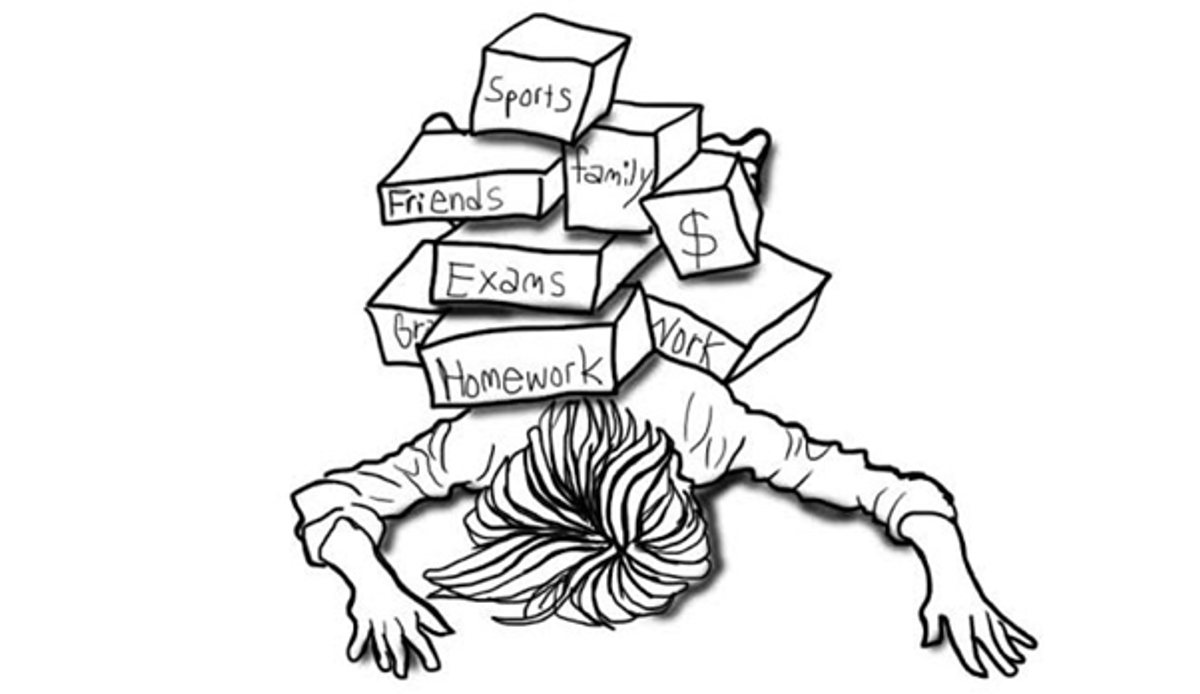Wellbeing Corner

Dealing With Stress
A certain amount of stress in life is normal (and even helpful), but you shouldn’t feel completely overwhelmed all the time. If this you do, there are a number of reasons you might be struggling to beat stress. Working them out is the first step in getting things under control.
This can help if:
- you feel stressed all the time
- you don’t know why you always feel so stressed
- you’re always moody, anxious or worried.
Is stress bad?
It’s not quite as simple as bad or good. Stress is the body’s way of rising to a challenge, and preparing to meet a tough situation with focus, stamina and increased alertness. It increases your heart rate, changes your breathing, and releases hormones into your system.
We all need a certain level of stress to be productive, to motivate us to achieve our goals. Stress becomes a problem when it tips over from being helpful to just plain overwhelming. Too much stress over a long period of time leads to exhaustion and burn-out, so it’s important that you keep your stress in check.
Signs of too much stress include:
- sleeping problems
- increased irritability
- having trouble concentrating
- having issues connecting with others
- feeling depressed, panicky or anxious.
If you’re experiencing any of these signs, it’s a good indicator that you need to work some stress relief tactics into your life and start managing your stress.
Managing stress
It’s normal to feel overwhelmed and stressed at times. You just need to figure out how to tackle problems and to cope with things that aren’t going your way.
- Figure out the real problem: What is the real thing that’s overwhelming you or causing you stress? It may not be the obvious thing, or it could be more than one thing.
- Figure out what you can change: Look at the problem realistically. What bits of it can you change? One of those bits might be the way you’re thinking about the problem.
- Figure out how you’ll change it: Make a note of all the things you can do to make that change happen. Then scrap the unlikely ones, and give yourself a couple of things to try.
- If you can’t change it, sometimes you have to accept it: and that’s not easy. Get some information on improving your coping skills, or try meditation to see if it helps you focus your thoughts.
When it’s a really big issue
When stress doesn’t go away, and you’ve tried your best to manage it, you might want to talk to a doctor or mental health professional about it. They can give you the right strategies for reducing your stress, and a psychologist can work with you to train your brain to break habits that aren’t working for you.
It can be hard to know where to find the support you need. ReachOut Next Step is an anonymous online tool that recommends relevant support options based on what you want help with. Try the tool to learn about the support options available for you. Don’t forget you can always refer yourself to the school counsellor or Student Services at any time.
If you want to hear from others who know what it’s like to feel stressed, follow this link to watch a three minute video of young people and professionals talking about going through tough times.
https://au.reachout.com/articles/im-stressed-and-overwhelmed

